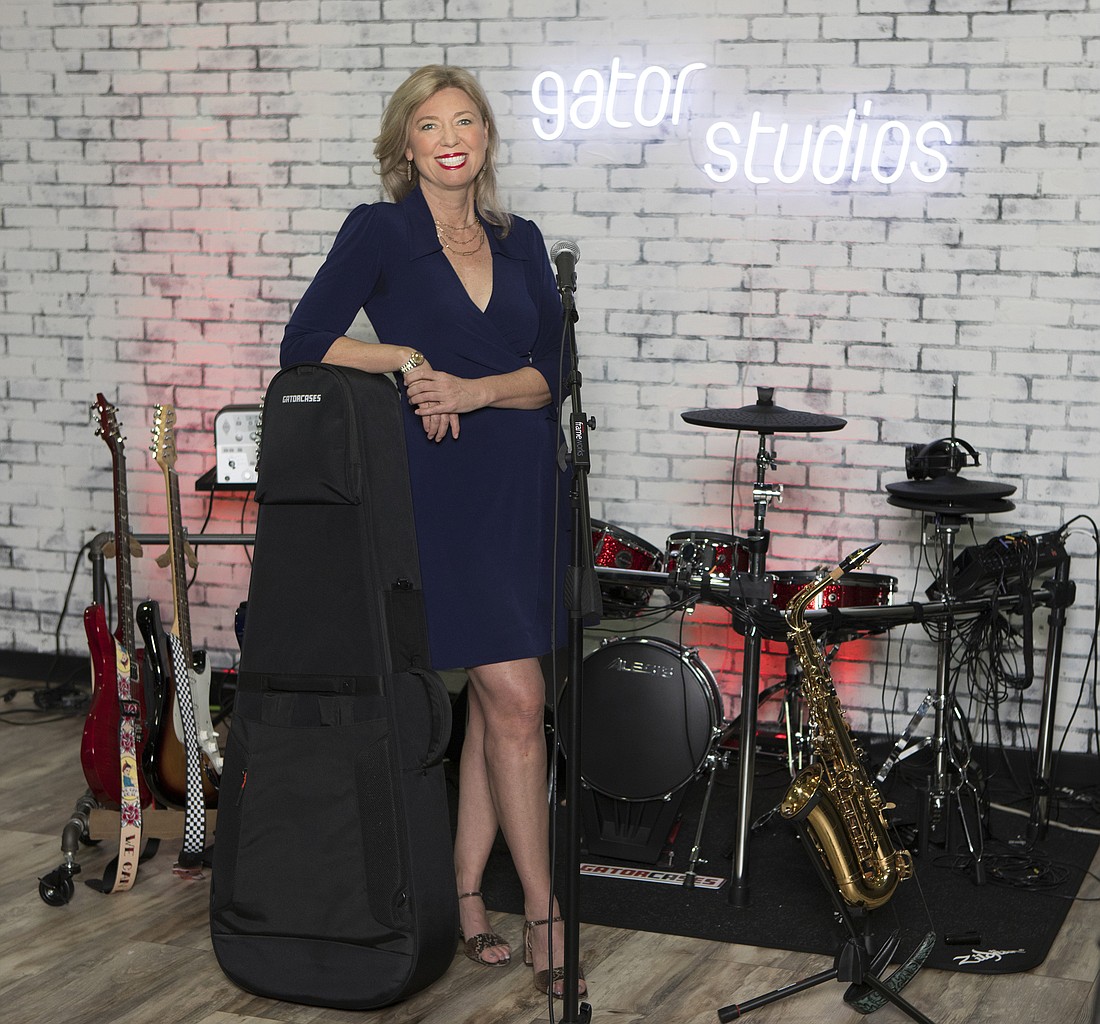- July 26, 2024
-
-
Loading

Loading

The COVID-19 pandemic kneecapped many businesses in certain industries — think restaurants and hospitality — while unexpectedly boosting others. Among the latter are companies that make musical instruments and accessories, which became hot commodities for people stuck at home with time to take up new hobbies. Legendary guitar maker Fender Musical Instruments Corp., for example, saw its sales rise from $600 million in 2019 to more than $700 million in 2020, according to CNBC, and it anticipates a record-breaking year for sales in 2021.
‘I wasn’t sure if I was outward-facing enough, if I had the chops [to lead]. So I started writing down all the things I thought I should do to fix this or answer that. I used that as a guide and referred back to it.’ Crystal Morris, CEO of Gator Co.
Locally, Gator Co., a Tampa-based firm that makes guitar cases, amps, straps, mic stands and hundreds of other accessories for musicians, has joined in the boom times. Led by CEO Crystal Morris, the family-owned company had a down year in 2020 but has rebounded nicely in 2021, with sales up between 60% and 70%, Morris estimates — despite logistical issues that continue to plague most, if not all, sectors of the economy. (The company declines to disclose revenue data.)
“The world is upside-down right now,” she says, “but we just put that aside. Everyone’s dealing with [supply-chain problems], so what we need to do is be the very best at dealing with it. We’re going to turn this into an opportunity by working faster and harder and smarter.”
Playing the part of the rah-rah, boosterish leader didn’t always come naturally for the 46-year-old Morris, who founded Gator Co. in 2000 with her father, the late Jerry Freed, who passed away six years ago after a series of health issues.
“For the whole first chapter of Gator, we did it together; we had a fun run together,” Morris says. “And then I had to face the reality that that wasn’t going to be the case in the future. I had to face the fact that there were many parts of the business he handled that I wasn’t as involved in.”
Freed, she says, oversaw sales, product development and supplier relationships, while Morris focused on internal operations. In response, Morris had to set herself up to succeed in the areas she was less familiar with. She started in a rather mundane, but effective, way: making lists.
“I love to make lists,” she says. “But I wasn’t sure if I was outward-facing enough, if I had the chops [to lead]. So I started writing down all the things I thought I should do to fix this or answer that. I used that as a guide and referred back to it during that period.”
Peer support was another big boost for Morris as she strove to learn how to effectively run the business. She joined a local chapter of the Young Presidents Organization (YPO), a nationwide network of business executives, to fill the gaps in her knowledge.
“I credit having that group to lean on and give me ideas," she says. "That inspired me to do things like hire a CFO, which was expensive for us at the time, but it helped us move forward and round out our team with more senior-level management.”
Morris also acknowledges Gator Co.’s hiring and employees retention practices for her successful transition to becoming the face of the company. The firm, with manufacturing and distribution centers in Fort Wayne, Ind., and Nova Scotia, Canada, has around 150 employees, many of whom are musicians and put the company’s gear through rigorous testing — when they aren’t rocking out, of course. (Gator Co. held a “Battle of the Bands” type competition at its Halloween party.)
And many of those workers, Morris says, were with the company when her father died.
“So many of them got behind me,” she says. “And I know it’s a super-popular term these days, but resilience [was key]. You have to be resilient, because obviously it’s not what you want to happen, but you just have to face it.”
Gator Co. has been more than resilient during the pandemic. Instead of coasting along on sales of existing products, the firm doubled down on innovation. One example? Face masks and bell covers made specifically for the coronavirus era. The items minimize the droplets that come out of musicians’ mouths and instruments while allowing them to comfortably perform.
“We’ve got hundreds of thousands of them out in the marketplace now — they’re allowing schools to get back to having music programs,” Morris says. "It’s been crazy trying to keep up, because the schools want them as fast as possible, but it’s been a great windfall. We’re helping to keep the industry going, and when other things weren’t selling, these were.”